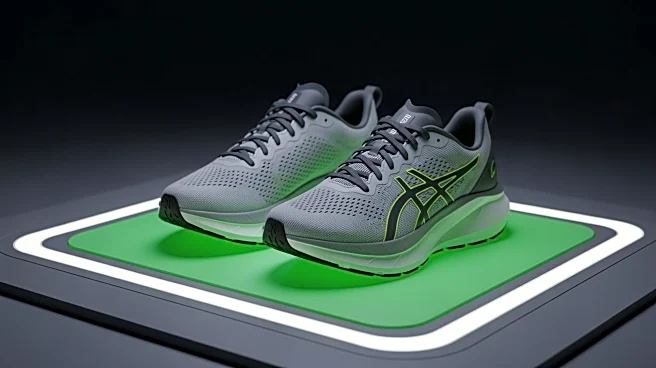What's Happening?
Nike has announced multi-year off take agreements with textile-to-textile recycling startups Syre and Loop Industries, reinforcing its commitment to using recycled materials. These agreements are crucial
for securing financing to scale recycling technologies, as Nike aims to reduce its reliance on virgin polyester. The company views closed-loop recycling as its highest aspiration, aligning with its sustainability goals. Syre, backed by H&M Group, will become Nike's lead strategic supplier for recycled polyester, aiding in the construction of its first commercial-scale facility in Vietnam. Loop Industries will supply Nike with its Infinite Loop Twist resin, a chemically recycled polyester.
Why It's Important?
Nike's agreements with Syre and Loop Industries highlight the growing importance of sustainable practices in the fashion industry. By committing to recycled fibres, Nike is taking a significant step towards reducing its environmental impact. These partnerships not only support the development of recycling technologies but also set a precedent for other brands to follow. As demand for sustainable materials increases, Nike's initiative could drive industry-wide changes, encouraging more companies to invest in recycling solutions and reduce their carbon footprints.
What's Next?
Nike's collaboration with Syre and Loop Industries is expected to facilitate the construction of new recycling facilities, increasing production capacity for recycled polyester. As these facilities become operational, Nike plans to incorporate recycled materials into select apparel lines, furthering its sustainability goals. The success of these partnerships could lead to broader adoption of recycled fibres across the industry, promoting circular materials and reducing reliance on virgin resources.
Beyond the Headlines
Nike's focus on recycled fibres reflects a broader industry shift towards sustainability and innovation. By investing in recycling technologies, Nike is not only addressing environmental concerns but also enhancing its brand image as a leader in sustainable practices. This move could influence consumer perceptions and drive demand for eco-friendly products, encouraging other companies to prioritize sustainability in their operations.









